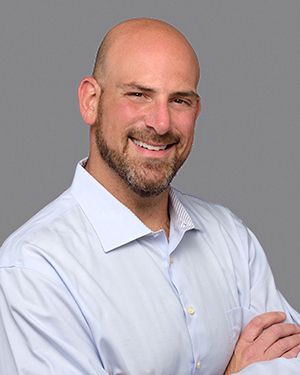June 23, 2020
Today and Tomorrow Look a Lot Different for Orthopaedics

If it's starting to feel like a Bill Murray movie for you, raise your hand. Expecting to see Ned Ryerson flag you down from across the street?
Every day we wake up to the same news – the kids are not in school and you’re living off a plethora of canned vegetables from the basement you thought you'd never need.
The psychological strain we are all dealing with right now is compounded by so many factors. Between the fear of contracting coronavirus and watching government and society figure things out on the fly, it feels like it’s all unraveling faster than the last roll of toilet paper you have in your house (Fast forward a few months or so and look back at that folly – ridiculous!). It all happened so fast, from some news of a virus out of China to America under lock-down; it only took a few weeks.
Ironically, U.S. Healthcare is one of the slowest facets of our society to change, in general. And while our vulnerabilities and lack of preparation are a magnifying glass on our inability to logistically manage a pandemic, there are some remarkable things happening that indicate U.S. Healthcare is going to emerge as strong as the clinicians on the front lines saving us right now.
In an effort to keep beds open for COVID-19 patients, emerging surgical cases are being directed to outpatient centers. By virtue of necessity, outpatient surgery centers are proving their capabilities. As a company, we are seeing implants purchased by ASCs indicated for truly emerging orthopedic trauma, like external fixation devices and intramedullary nails.
Since inception, outpatient surgery centers have been touted as one of the future cornerstones of a strong and fiscally-sound U.S. Healthcare system. Procedures performed in outpatient centers cost a fraction of what they do in hospitals. Patients are happier, and they go home and recover more quickly as well. Why they haven’t played more of a prominent role by now is not nearly as interesting as how much of a role they will be allowed to continue to play when people begin going back to work, as the number of car accidents and other road-related injuries will once again rise. Also, once sports of all ages and professions return in full swing, injuries from those, along with the mounting pile of backlogged elective procedures, will likely mean that more trauma procedures than ever before will take place in ASCs, highlighting the immediate necessity for a system of delivering care in the OR that is driven by value and cost-effective approaches for facilities, physicians, and patients.
For us, those value-driven ideals are not just some kind of well-crafted façade carefully draped over the reality of how things actually work within our company. The truth is that what we do to deliver our implants is undeniably unconventional, and if U.S. Healthcare is to learn anything from this pandemic, it’s that a little more unconventional might just be exactly what we need to make things as good as they possibly can be for everyone involved.
